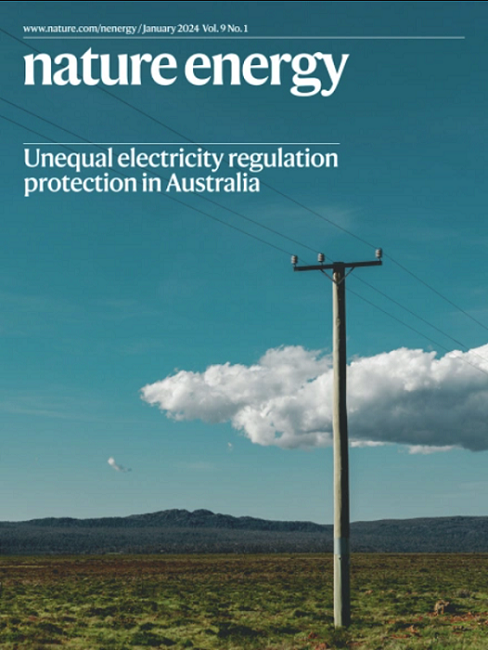An actor–critic algorithm to maximize the power delivered from direct methanol fuel cells
IF 60.1
1区 材料科学
Q1 ENERGY & FUELS
引用次数: 0
Abstract
Optimizing nonlinear time-dependent control in complex energy systems such as direct methanol fuel cells (DMFCs) is a crucial engineering challenge. The long-term power delivery of DMFCs deteriorates as the electrocatalytic surfaces become fouled. Dynamic voltage adjustment can clean the surface and recover the activity of catalysts; however, manually identifying optimal control strategies considering multiple mechanisms is challenging. Here we demonstrated a nonlinear policy model (Alpha-Fuel-Cell) inspired by actor–critic reinforcement learning, which learns directly from real-world current–time trajectories to infer the state of catalysts during operation and generates a suitable action for the next timestep automatically. Moreover, the model can provide protocols to achieve the required power while significantly slowing the degradation of catalysts. Benefiting from this model, the time-averaged power delivered is 153% compared to constant potential operation for DMFCs over 12 hours. Our framework may be generalized to other energy device applications requiring long-time-horizon decision-making in the real world. Direct methanol fuel cells offer high energy densities but face challenges including catalyst degradation and surface fouling, which reduce performance over time. Here the authors introduce a control system inspired by reinforcement learning to optimize the power output and mitigate degradation of direct methanol fuel cells by dynamically adjusting the voltage.


一个actor-critic算法,以最大限度地从直接甲醇燃料电池的电力交付
在复杂的能源系统中,如直接甲醇燃料电池(dmfc),优化非线性时变控制是一个关键的工程挑战。当电催化表面被污染时,dmfc的长期电力输送会恶化。动态电压调节可清洁表面,恢复催化剂活性;然而,人工识别考虑多种机制的最优控制策略是具有挑战性的。在这里,我们展示了一个非线性策略模型(Alpha-Fuel-Cell),该模型受到行动者-批评者强化学习的启发,它直接从现实世界的当前时间轨迹中学习,以推断催化剂在运行过程中的状态,并自动生成下一个时间步长的合适动作。此外,该模型可以提供实现所需功率的协议,同时显着减缓催化剂的降解。得益于该模型,与dmfc在12小时内恒电位运行相比,时间平均输出功率为153%。我们的框架可以推广到现实世界中需要长期决策的其他能源设备应用。
本文章由计算机程序翻译,如有差异,请以英文原文为准。
求助全文
约1分钟内获得全文
求助全文
来源期刊

Nature Energy
Energy-Energy Engineering and Power Technology
CiteScore
75.10
自引率
1.10%
发文量
193
期刊介绍:
Nature Energy is a monthly, online-only journal committed to showcasing the most impactful research on energy, covering everything from its generation and distribution to the societal implications of energy technologies and policies.
With a focus on exploring all facets of the ongoing energy discourse, Nature Energy delves into topics such as energy generation, storage, distribution, management, and the societal impacts of energy technologies and policies. Emphasizing studies that push the boundaries of knowledge and contribute to the development of next-generation solutions, the journal serves as a platform for the exchange of ideas among stakeholders at the forefront of the energy sector.
Maintaining the hallmark standards of the Nature brand, Nature Energy boasts a dedicated team of professional editors, a rigorous peer-review process, meticulous copy-editing and production, rapid publication times, and editorial independence.
In addition to original research articles, Nature Energy also publishes a range of content types, including Comments, Perspectives, Reviews, News & Views, Features, and Correspondence, covering a diverse array of disciplines relevant to the field of energy.
 求助内容:
求助内容: 应助结果提醒方式:
应助结果提醒方式:


